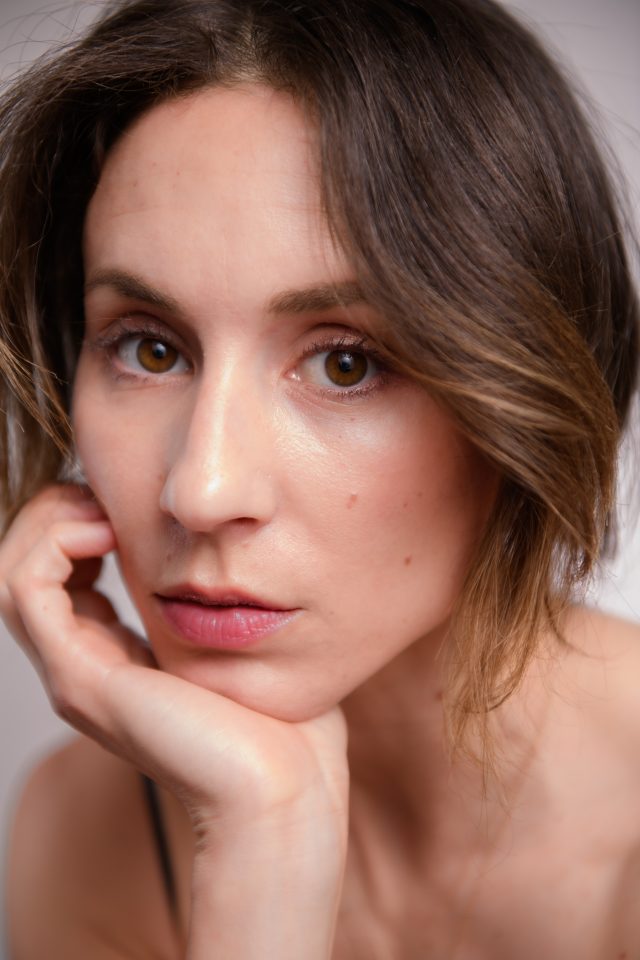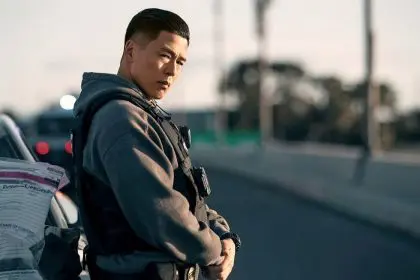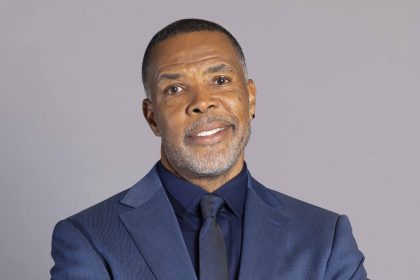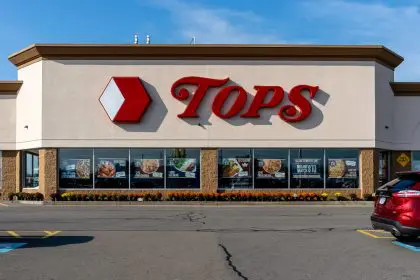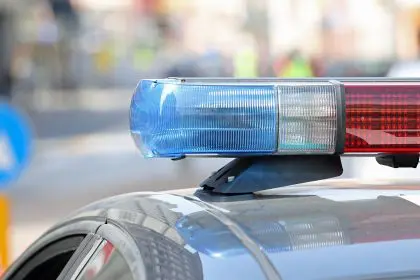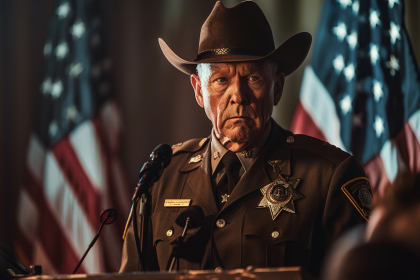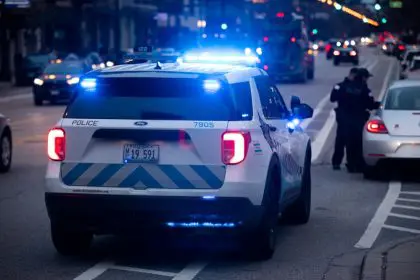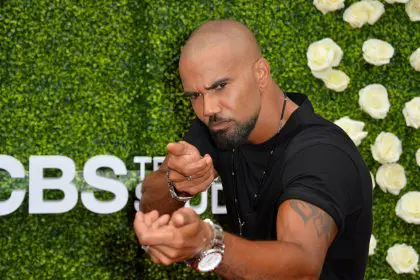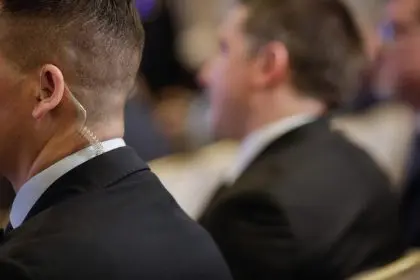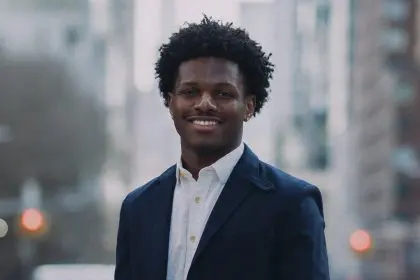Troian Bellisario continues to break new ground in her illustrious career with her latest role in Amazon Prime’s “On Call.” The multi-hyphenate artist, known for her memorable portrayal of Spencer Hastings in “Pretty Little Liars” and her award-winning work on the podcast “Ad Lucem,” now steps into the shoes of Traci Harmon, a law enforcement officer whose leadership and empathy challenge traditional paradigms in police procedurals.
What does it mean to be a leading woman wearing a uniform in today’s television landscape?
There’s a wonderful recent lineage of really incredible women stepping into roles of leadership as law enforcement, so I feel very grateful to be counted among them. The wonderful thing about this experience was that Traci Harmon, the character that I play, first and foremost cares about being a leader and a teacher and a mentor to her proteges, to the officers that she trains.
What was your initial reaction to getting the lead role?
This is such an ensemble piece, and every scene that I share I share with the incredible Brandon Larracuente. To be able to be a partner on and off screen with him is just, I feel so immensely grateful. We are in such an incredible cast, Eriq La Salle, Lori Loughlin, Matt Brandt, Rich Ting. When I got the call that I was going to be a part of this ensemble, I just felt so grateful to be among them.
How do you approach building vulnerability and chemistry with a scene partner?
It was really an easy thing with Brandon as a scene partner, he’s a wonderfully vulnerable and open-hearted guy, he’s incredibly kind and empathetic. It was just a really wonderful experience getting to know him on the set, we have a lot of time where we’re sitting in a car together while they’re setting up shots, learning about his family history growing up with two parents in law enforcement, learning about his wife and their relationship. It felt like we were both very excited to be there with each other, almost hilariously to the point where I remember we were shooting one scene at the very beginning.
It was our audition scene, so we’ve done it many times together, and then we were shooting it maybe a week into shooting, we’re not supposed to know each other that well, and Eriq came in, Eriq was directing, and he gave us the note, “You guys are a little bit too friendly. Remember like, take this back a couple of weeks to when you didn’t just go through all of the training.” It was very fun to feel like our friendship was blossoming very quickly, but that we got to modulate that, and hide that, and figure out where Diaz and Harmon were in the course of the narrative.
How do you respond to directorial guidance during scenes?
I really love it, I’m deeply grateful for directors that are that involved, because there are some directors that really sit back and say, “I trust you and you go.” Which is wonderful, but at the same time it can feel a little bit like you’re lost at sea sometimes. What I’m so grateful for, because I’ve been in the director’s chair and obviously in front of the camera, is that the director really has the 30,000-foot view of everybody. The director’s thinking about it from the point of view of my character, and Diaz, and where we are in terms of the point in the story.
It’s my job to get very granular as an actor about what are my emotional beats in the scene, and what’s going on for me, when somebody comes in and says, “Oh, remember, you’re not at this point in the relationship,” or “he just said that thing to you in the scene that we haven’t shot yet, but it happened right before this,” it’s so helpful and I just really relish when a director gives me those reminders and helps me navigate my emotional journey in the scene.
What does wearing the uniform mean to you in terms of responsibility?
There was a podcast on This American Life, it was a story about these two gentlemen who were Lifeguards, but they were off duty, and they were swimming in an ocean club, and somebody yelled, shark, and there was a guy who was much closer to the shark and everybody panics and swims out of the water, and these two gentlemen swim towards the shark. I think about that a lot with characters like Harmon and Diaz, what is it about you that is taking up the job of swimming towards the shark, somebody says “Help!” And you’re oriented to go into that situation at whatever cost to your personal safety.
We just saw it in Los Angeles with the fires, firefighters who are running towards the flames to protect homes and properties that they may have never seen, but it’s their job, and it’s what they’ve dedicated their lives to, to protect our city and all of its inhabitants, and so putting on that uniform felt like a big responsibility.
You do feel like a superhero because you’re in a vest, you’ve got a crazy belt, that’s 19 pounds of added weight, and they say, “Okay, now run, run as fast as you can.” And it was a big challenge, and it made me really understand what it takes, the kind of training, the kind of physicality, the mental clarity to be a first responder.
What observations from your ride-along research shaped your performance?
Just the ease with which the officer that I got to go on a ride along with, and all of the officers that I encountered out in the field, it was their job, they were clocking in, and so when we were driving, she was multitasking with the computer that was next to her, she was fielding calls, she had an earpiece in, she was listening to what was going on in the radio, and she’s also constantly scanning what’s going on around her.
Then the thing that really struck me was the way that members of the community looked at them, there were certain people that sort of held their breath as somebody in uniform walked by when we went on a call, the person who called us, the way that they would run up to the police officer, for help, or even look to me, and I had a little lanyard that said ride-along, I was not looking official in any way, shape or form, but because I was adjacent, they would look to me as if I could be a part of the their relief in that moment, and that kind of power and authority was something that I just really noticed, right off the bat when you put on that uniform, the way people look at you completely changes.
How do you view the dynamics of police partnerships and their broader social implications?
What was so interesting about Diaz and Harmon, and I think all partnerships in law enforcement is, it doesn’t matter how your relationship is going, when you are in the car, you could be getting into a fight about something, you could completely disagree about politics, the minute you step out of that car you rely on each other for your life.
I am completely dependent on you and the way you behave in this situation, if you unholster your gun, I have to go with you, even if I completely disagree with that, I have to be with you, I have to protect you, I have to ensure that you’re making good decisions because it doesn’t just reflect on me as a police officer, it could mean I could get hurt, or it could mean my life or death.
The show really did that very well, it didn’t matter if Harmon and Diaz were getting along in the car, it didn’t matter if they were seeing eye to eye, or if they were just in a fight, the second they got out of the car, they were a unit that was moving together. That kind of compartmentalization is really necessary for the job, also, you could have just gone on a call where you experience something that broke your heart, and then the second something else happens, you’ve got to focus on that with 100% of your body and your mind and your attention.
If you were to direct an episode next season, what would be your approach?
If I were to direct, something would need to happen to Harmon, where she would be sequestered off. This previous season I had the wonderful experience of being in every scene, in front of the camera, almost constantly, which was wonderful, but at the same time it took all of my focus, and so to be able to jump behind the lens and think about the shot and think about other actors in the scene would be very difficult. I would probably need to have Harmon get benched for a couple of days, and it would have to be an episode following Diaz or following a couple of the other members of our ensemble, which would be a wonderful way to access the show. To get out of the point of view of Harmon for a while, and get into the world of the other characters, of Eriq La Salle as Lasman, or Brandon as Diaz.
What does it mean to you to be part of this new wave of female leads?
My favorite part about Harmon was that it was never about her being a woman, most of my experience in Hollywood, particularly being on a teen oriented show before this, was a lot about it, it was Pretty Little Liars, and so it was very much about the hair, the clothes, the glamour, and that was very fun, and it was perfect for that show, but I loved that what was most important as I was engaging with Harmon was how is she leading with empathy, how is she being efficient? She knows she’s never going to be the strongest or the fastest person on the scene, so what does she have to bring? She has her intelligence, she has her empathy, and she has the ability to connect to everybody who is on that call.
She was always leading with her empathy, how can I connect to somebody who might be having the worst day of their lives, and how can I make them feel safe and seen and help them? I think there have been really wonderful examples, Mariska Hargitay is like the Queen of this sort of world, and we saw Kate Winslet in Mare of Easttown, and it was really cool to see her bringing in what’s it like for a mother to work in this field, and to me, the film Sicario was a really big inspiration, and watching Emily Blunt as a woman in a primarily male dominated scene. I think it was just a really wonderful opportunity for me as an actress, and I just love that I get to play in this world. I feel very lucky.
